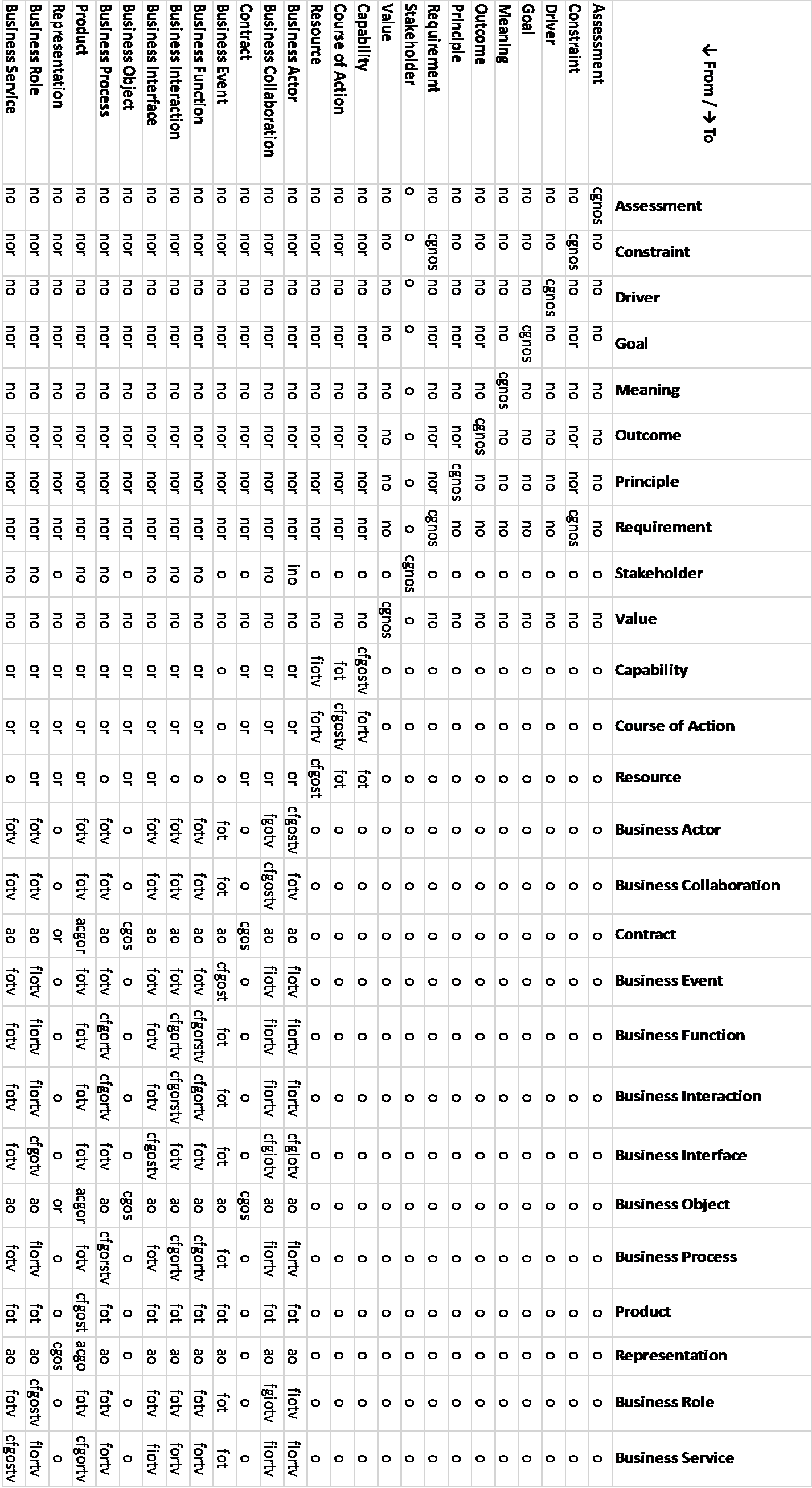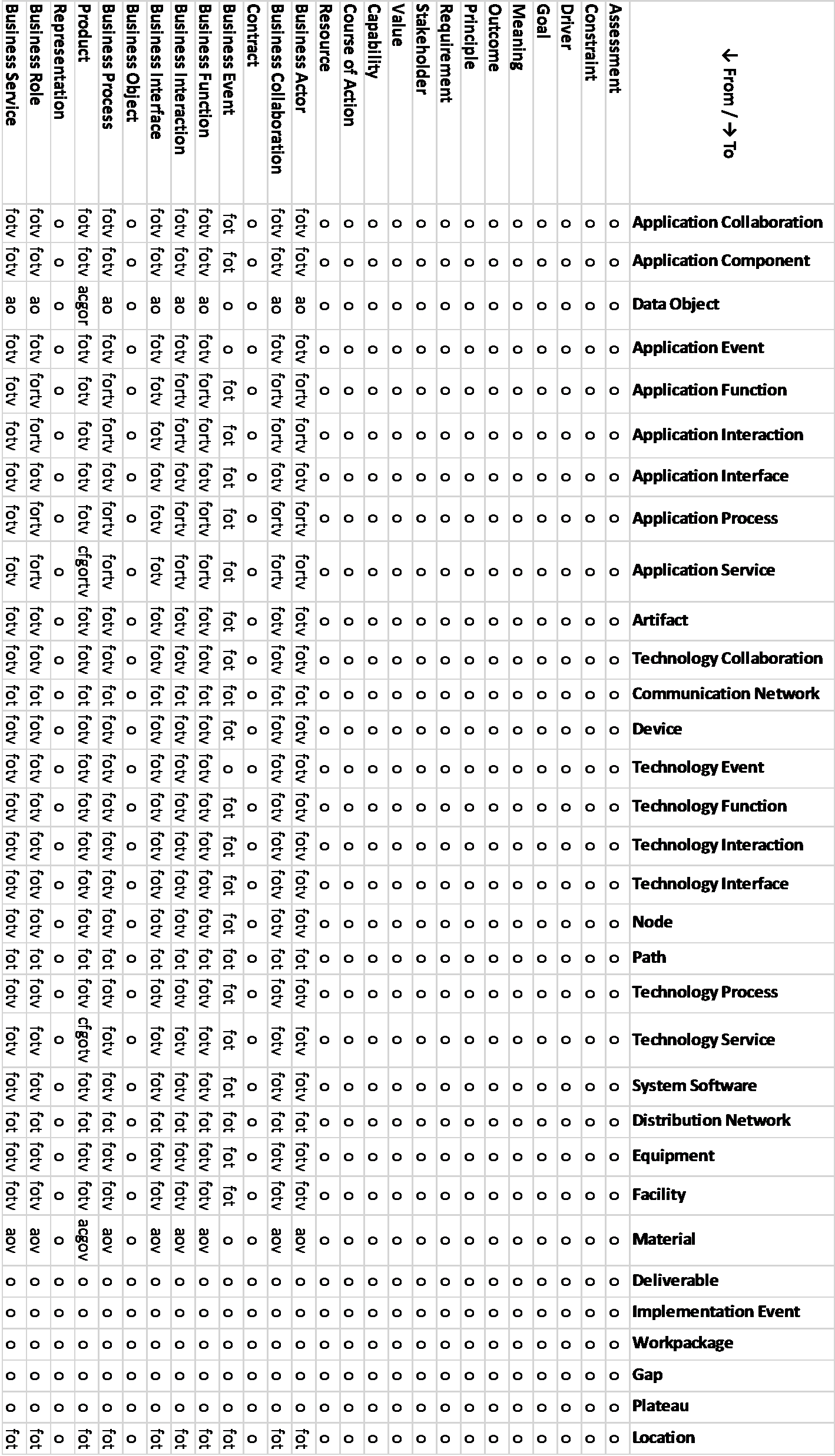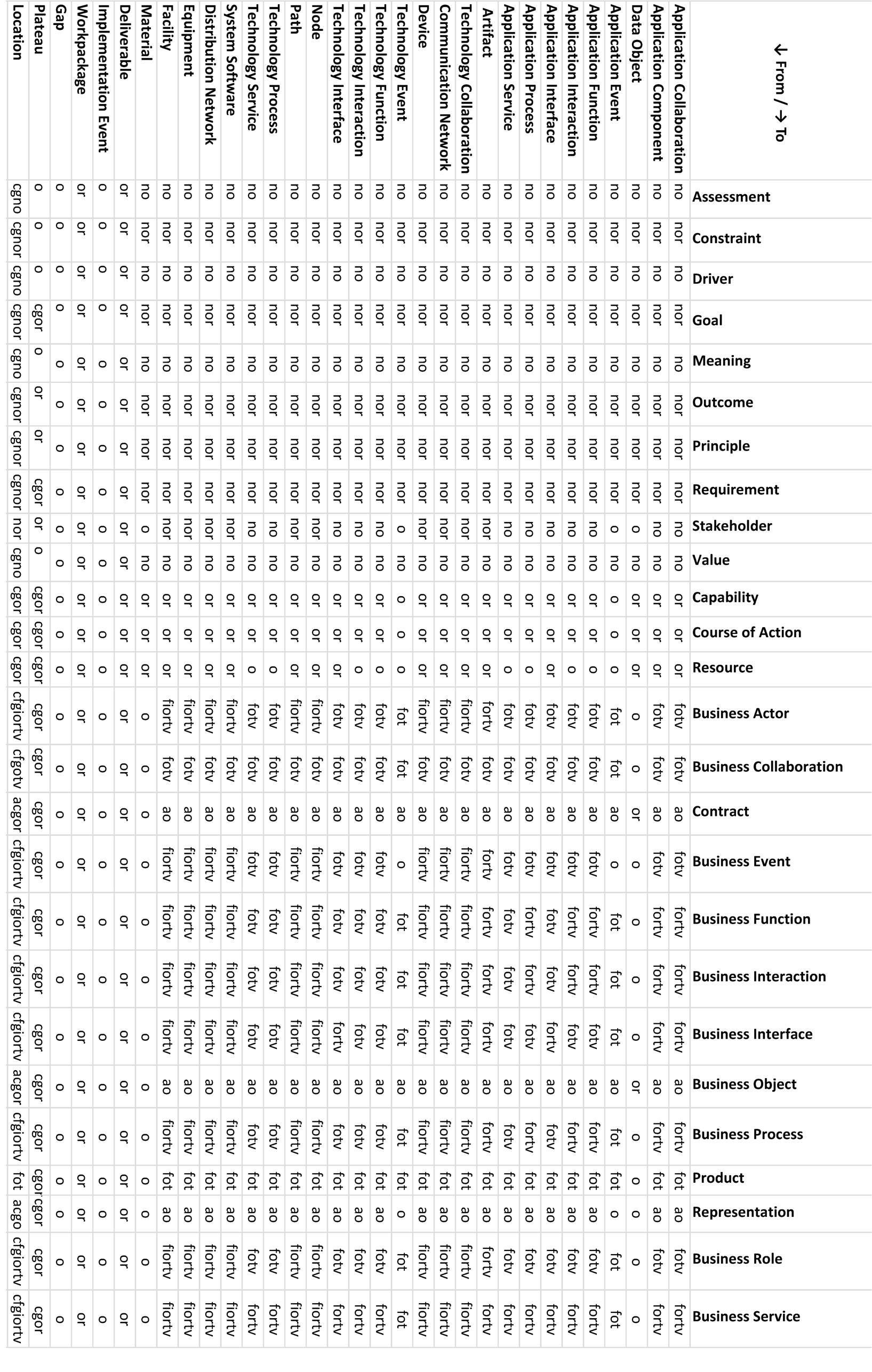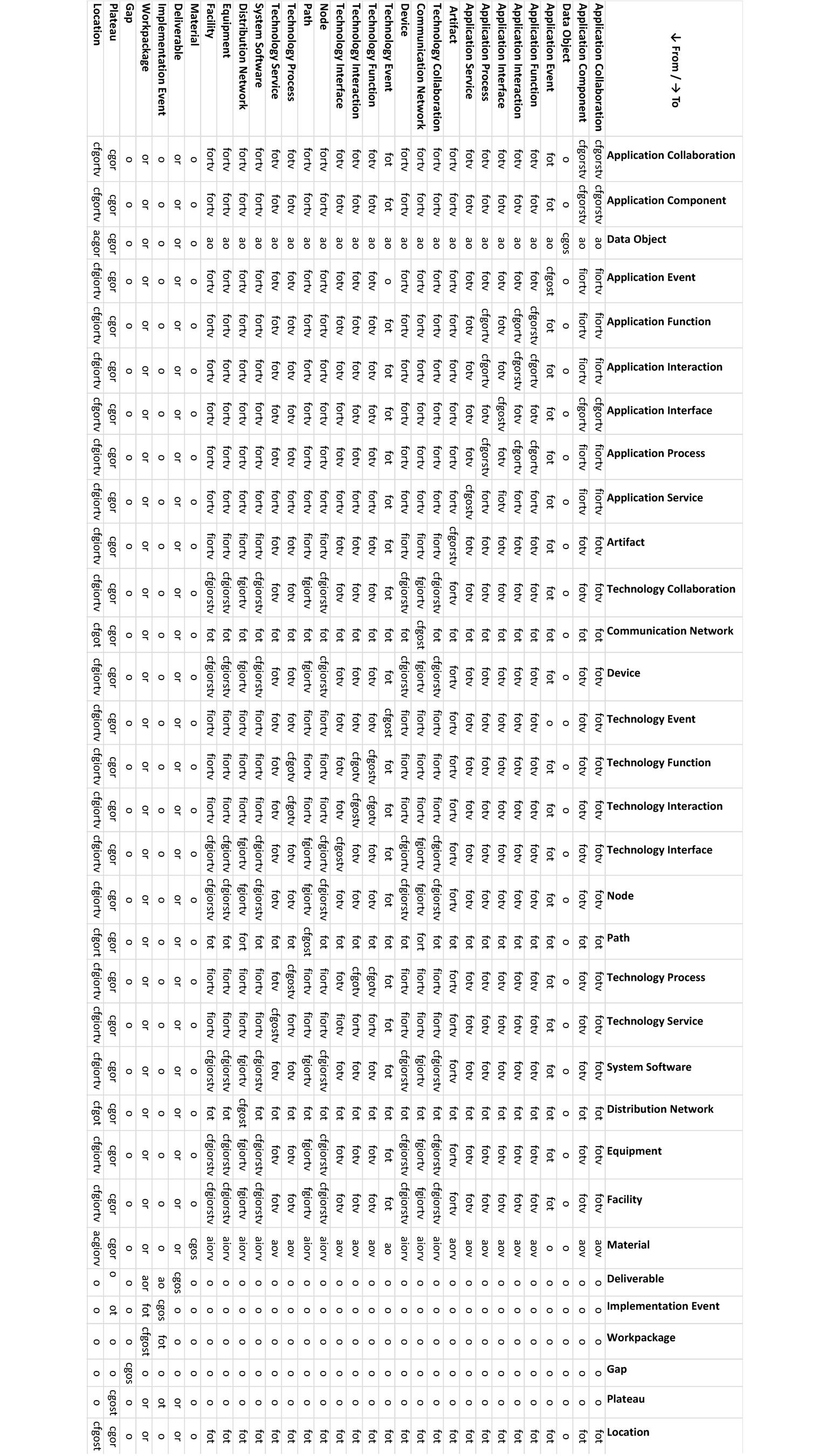
This appendix details the normative requirements for relationships between elements of the ArchiMate modeling language.
The letters in the tables have the following meaning:
(a)ccess (c)omposition (f)low a(g)gregation ass(i)gnment
i(n)fluence ass(o)ciation (r)ealization (s)pecialization (t)riggering ser(v)ing




B.1 Grouping, Plateau, and Relationships Between Relationships
For grouping, plateau, and relationships, the following conditions hold:
• Grouping and plateau elements may have an aggregation or composition relationship to any concept (element or relationships).
• A grouping element may have any relationship with any element (provided that the element is a possible target element for the relationship).
• Any element may have any relationship with a grouping element (provided that the element is a possible source element for the relationship).
• A grouping element may have any relationship with another grouping element.
• Any relationship may have an association relationship with any element.
|
From � / To → |
Grouping |
Plateau |
Element |
Relationship |
|
Grouping |
any |
cfgorst |
any* |
cgo |
|
Plateau |
cfgiorst |
|
|
cgo |
|
Element |
any** |
|
|
o |
|
Relationship |
o |
o |
o |
|
* Provided that element is a possible target element of the relationship.
** Provided that element is a possible source element of the relationship.
(c)omposition ass(i)gnment ass(o)ciation (t)riggering
(f)low a(g)gregation (r)ealization (s)pecialization
Downloads of the ArchiMate documentation, are available under license from the ArchiMate information web site. The license is free to any organization wishing to use ArchiMate entirely for internal purposes. A book is also available (in hardcopy and pdf) from The Open Group Bookstore as document C162.